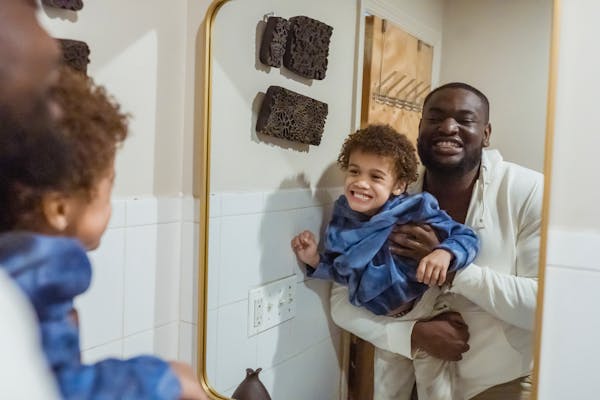Alone together: Overcoming the silence of mental health in Asian communities
On the surface, 31-year-old Daryll Ymbang is the picture of mental stability — a married family man with a steady career in the IT industry. But underneath his successes, Ymbang is still battling the effects of mental health issues he says most in his Filipino family ignored for almost 15 years.
Ymbang is among many in the Asian community who say there is still a problem with trivializing mental disabilities.
“There are times where I feel sick, but I look fine,” Ymbang says, suspecting that he has been dealing with symptoms of social anxiety disorder since the age of 16.
Despite his panic attacks — which caused chest pains and shortness of breath — Ymbang remembers his parents firing back with, “you don’t have a fever” or, “you’re not vomiting” whenever he said he felt sick.
“There’s no explanation around it. I don’t have a fever; I don’t feel dizzy. I just want to sit here and cry,” he says.
Asian-Canadian Shirley Lo, a registered psychologist at Calgary’s Uniquely Embrace Counselling says many Asian parents don’t understand mental health issues, partly because of existing traditions like “saving face” but also due to the absence of nuanced language about mental illness.
“[Asians] don’t think about it, they don’t talk about it, sometimes they don’t even know what it is,” she says, adding that Asia’s collectivist culture contributes to the silence surrounding mental health issues.
“People think about the group, the family, the community more than the individual. If one person is “sick” … it seems to have some impact on the whole group. So one may sacrifice oneself to keep the harmony of the group.”
Ymbang recalls the day he finally asked his parents for professional help, only to have his confidence squashed by go-to mantras: “It’s all in your head,” “that’s just how things are” and “you have to deal with it.”
“I kind of got gypped in the support department,” Ymbang says. But his Filipino background brought an additional obstacle to understanding mental health — religion.
In his upbringing, prayers were often considered the answer to many issues, something Ymbang does not think is an adequate solution for mental illness, but he says things are getting better.
“I think [my parents] are more conscious of the fact that [mental health] exists.”
What’s stopping Asian-Canadians from talking about mental illness
Growing up in a Chinese-Vietnamese family, May Nguyen, 21, had her own experiences with school and the academic pressures to do well.
She explains that “a lot of immigrant parents get aggressive” when their children perform poorly in school. “So we just become afraid to express ourselves.”
September 2016 marked an important milestone for Nguyen. It was the year she was set to graduate from the Southern Alberta Institute of Technology. It was also the year she was formally diagnosed with depression.
“I didn’t want to go to school and I didn’t vocalize that because I knew the reaction I would get … they just didn’t understand where I was coming from,” she says.
Nguyen can’t recall her parents ever discussing mental health, but says the hushed tones she remembers were more than enough to know that having mental disorders were unacceptable.
When she did try to bring up mental illness, Nguyen says her parents would contrast her problems with their own accounts, expressing statements like, “Why would you feel that way?” or, “Compared to what I’ve had to do, it’s nothing.”
Although she withheld her deteriorating mental state for more than a decade, Nguyen managed to persevere and earn her degree in journalism. But she says she won’t be talking to her parents about her struggles any time soon.
“I just try really hard not to talk too much about my personal feelings.”
This is a sentiment 20-year-old, Julia Luong knows all too well. Born to a Chinese-Vietnamese father and a Caucasian mother, Luong spent her early days with her dad’s side of the family, some of whom she claims openly mocked the idea of mental health issues.
“My dad said that I was putting myself into boxes and putting labels on myself. It was hard to get him to understand that [mental illness] is not … a phase,” she says.
As a teenager, Luong says she wound up in the hospital several times for her mental health issues. Over the next few years, she would live with a multitude of mental health challenges including anxiety and depression.
“I hid my disorders for a really long time. I had a fear of being judged,” she says, adding that a number of factors may influence mental health perceptions, including stoicism in Asian culture.
“There’s a stereotype that Asian people are supposed to be smart, put together, … adept and multi-talented. Mental disabilit[ies] … are heavily looked down upon because they affect work, pride and academics.”
Luong, now a sales associate at Chatr Mobile, says from her personal experience, failure to meet these high expectations combined with the misconceptions about mental illness often leads to being shunned in Asian communities.
“Both of my parents don’t really know how to respond to my symptoms … so they just try to keep their distance.”
A change in perspective
Danni Lei, a registered provisional psychologist at the University of Calgary, says she sees a trend among the Asian-Canadians that walk into her office — shame, fear and avoidance, all related to the historical “model minority” stereotype and deep cultural roots.
“There’s … just a lot of existing shame and guilt around mental health,” she says, noting the importance of family, reputation and status for Asian individuals.
Lei says Asian communities view mental illness as more of “a weakness of character and not being strong … or hard-working enough” and that the myth of exceptionalism creates high pressures for Asian-Canadians.
“There’s probably a lack of general mental health information among immigrant families … a lack of understanding around terminology and experience. There’s this underlying belief that if you work hard enough … you’ll be successful and thus, have no problems.”
Being of Chinese descent herself, Lei says she isn’t surprised by the lack of support for mental health issues by some Asian families and friends.
“You just don’t really talk about it. Mental health isn’t a topic that’s well discussed, especially within [Asian] families. I know that even within my own family,” she says.
While Lo agrees that the silence surrounding mental health issues in Asian communities reign strong, she says voices from the younger generations are breaking through and things are changing.
“Some of them are [in Canada] long enough to experience different ways of handling mental health issues … so they become more open-minded to things they are not used to,” Lo says, noting that her Asian clientele has increased more than 25 per cent in just the last four years.
Nevertheless, she admits that the shift is going to take time. “We are talking about tradition, a history of how people deal with mental health issues. So to break the barriers … involve[s] a change in the mainstream culture.”
Moving the mental health conversation forward
Not all parents in the Asian community are dismissive of mental health issues. Father-of-one, Guillermo Chan is one of many Asian parents spending more time on mental health education.
Growing up in Costa Rica and Panama, “I didn’t even know depression was a thing,” the 32-year-old Chinese-Panamanian says, relating his lack of awareness to his roots and culture. “You are either good at what you’re doing in school or … you’re going to get the consequences of not being good.”
While free of mental health issues of his own, Chan says he’s willing to keep an open mind because he recently witnessed his wife’s battle with anxiety and postpartum depression.
“The fact that I was able to see [my wife] crumbling down, … that’s what actually made me think that it was something else,” he says, recalling how helpless he felt when he couldn’t stop her shallow breaths during panic attacks.
He says he calls his wife’s breakdowns “waves” referencing the ups and downs of anxiety and depression. “For the longest times … I was trying to fix [her anxiety and depression] … and I was crashing through those waves.”
“It’s not about crashing through the waves; it’s about learning how to surf because … you have to be able to help and you have to go … with them, otherwise there’s no point,” he says.
Chan adds that he is determined to use his newfound knowledge about mental illness in positive ways to improve the community’s silence and encourage others to learn more.
“There are so many resources available in the city. Don’t be afraid to speak up.”
Editor: Robyn Welsh | [email protected]
X
Republish this article
We would love for you to republish our student work!
Just scroll down to copy and paste the code of our article into your CMS. The codes for images, graphics and other embeddable elements may not transfer exactly as they appear on our site.
It’s free! We only ask that you follow some simple guidelines when doing so:
-
You’ve gotta credit us. In the byline, we prefer “Author Name, Calgary Journal.” At the top of the story, include a line that reads: “This story was originally published by the Calgary Journal.”
-
If you’re republishing online, you must link to the URL of the original story on calgaryjournal.ca.
-
You can’t edit our material, except to reflect relative changes in time, location and editorial style. (For example, “yesterday” can be changed to “last week,” and “Abbotsford, B.C.” to “Abbotsford” or “here.”)
-
You cannot republish our photographs or illustrations without specific permission. Please contact managing [email protected] for more information.
-
Any website our stories appear on must include a prominent way to contact you.
-
If you share the story on social media, we’d appreciate a shout-out @CalgaryJournal (Facebook, Twitter and Instagram)
- If we send a request to change or remove Calgary Journal content on your site, you must agree to do so immediately.
This policy was adapted from ProPublica and Wisconsin Watch.
If you have any other questions, contact our managing editor Archie McLean at [email protected]
1




